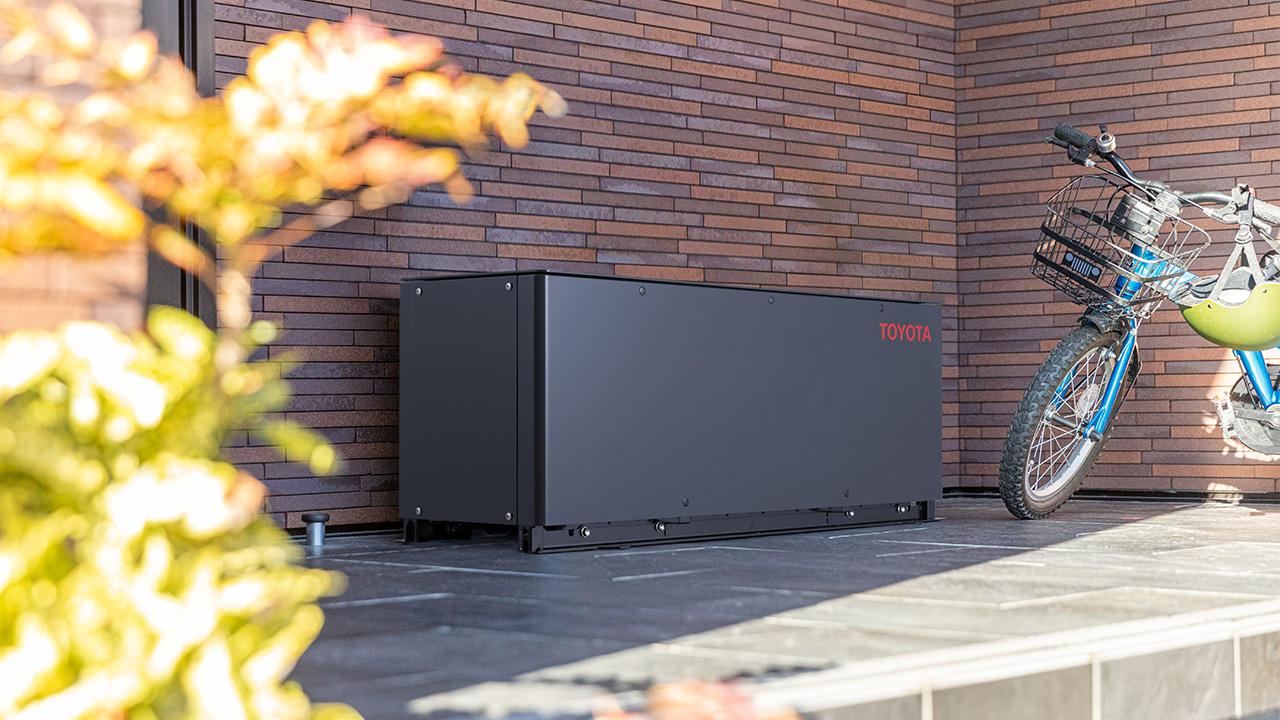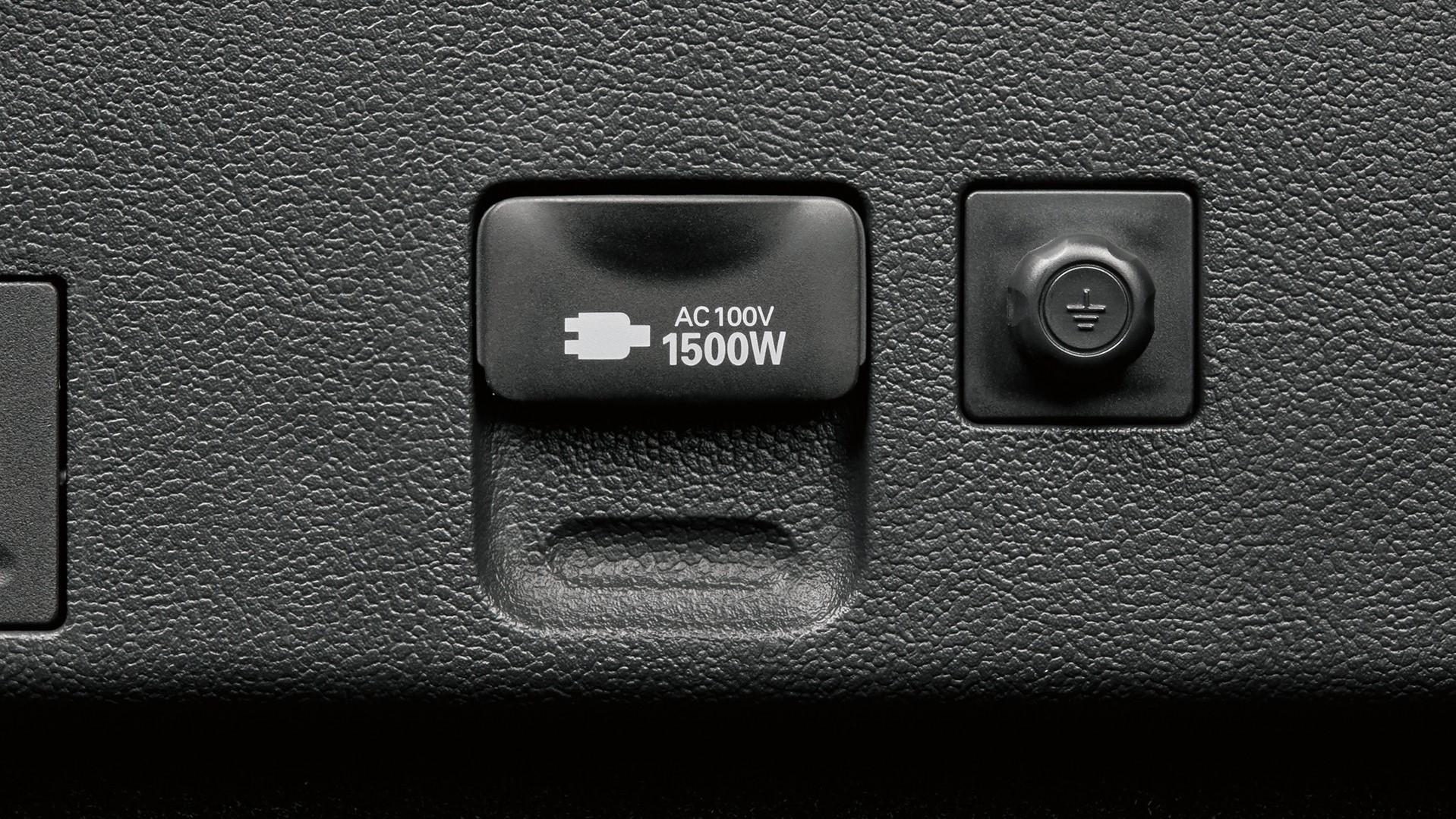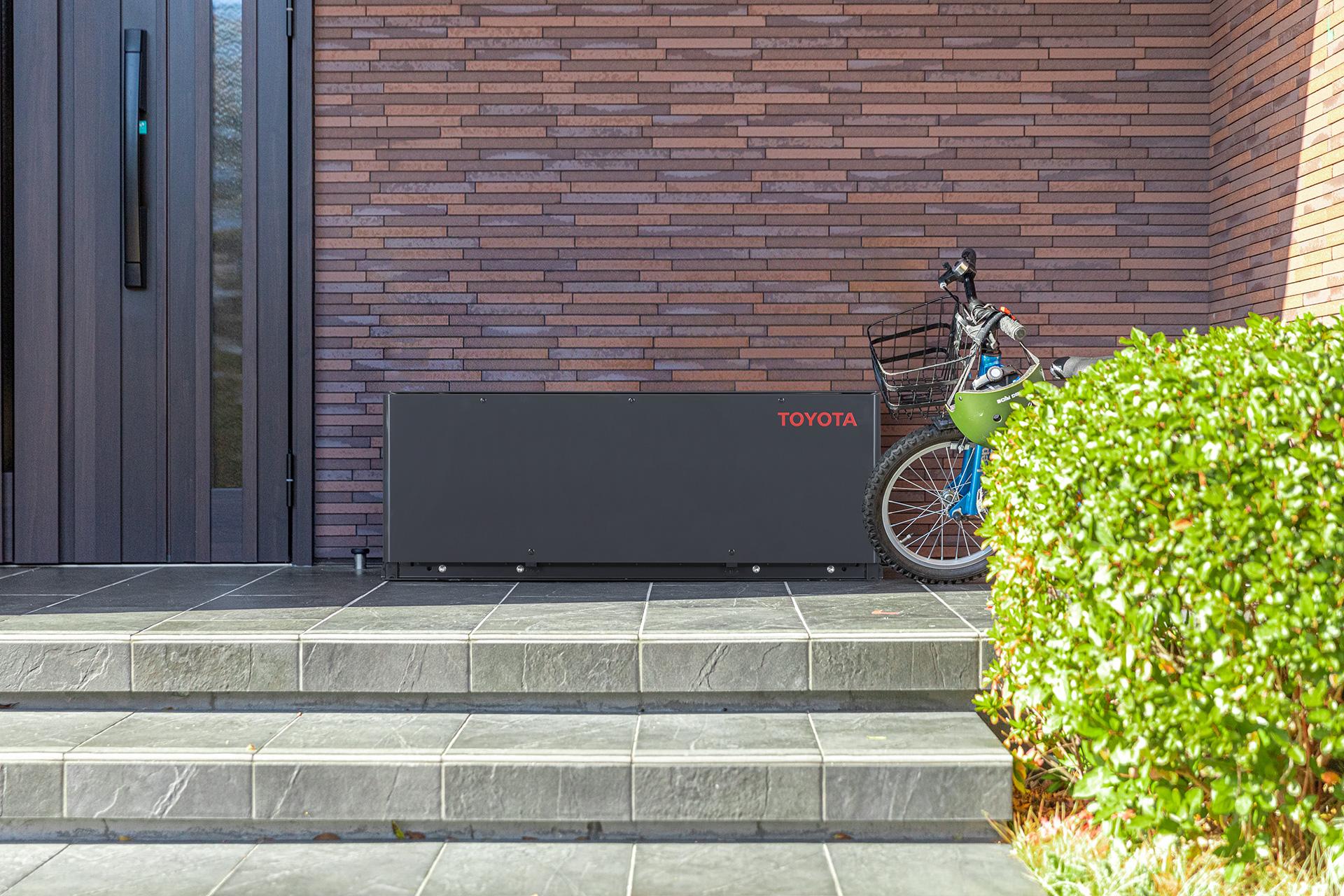
As stable power supply becomes an increasingly critical issue worldwide, Toyota has released a home battery system in Japan. Here, we look into the project's background and the struggles of the team charged with this new battery business.
What kind of home battery can a car company make?
In fact, Toyota is not the only automotive company selling home battery systems in Japan. Companies like Tesla and China’s CATL, which have competitive advantages in mass-producing automotive batteries, are already entering the market.
Toyota’s advantage in this market is a connection between home and car. Any car with an AC 100V outlet can supply electricity to the battery system.

On its own, the battery system can store about the amount of electricity an average household uses daily, but an HEV or PHEV with a full gas tank can add four and a half days’ worth of electricity.
Toyota is an automaker uniquely positioned to provide this kind of V2H solution in response to long-term power outages thanks to its group company Toyota Housing.
Another advantage is the product’s durability. Many users install a home battery system to be well-prepared for disasters. It would be useless if the system were vulnerable to damage by flying debris or floodwater submersion.
Toyota’s battery system takes advantage of battery protection technology developed through the automotive business to achieve the highest level of durability and waterproofing.
An eye on effective use
In the lifecycle of making, using, and discarding batteries, the “using” is where people look to reduce CO2.
However, making them produces a large amount of CO2. That’s why it’s necessary to use every manufactured battery for as long as possible.
Currently, the O-Uchi Kyuden System uses newly manufactured batteries, but in the future, Toyota plans to use ones recovered from vehicles.
In addition, while battery electric vehicles require many batteries, predicting future demand trends is not easy since they are strongly influenced by the state of infrastructure and government subsidies.
Therefore, it is important to have a channel for non-vehicle battery usage in case of an excessive supply of batteries.
This project is filled top to bottom with a dedication to avoiding battery waste, as it was born out of a department focusing on effective battery use.
One response from Toyota to disaster and power issues
This small group started from scratch to bring Toyota’s home battery system to the market in two years.
With a startup mindset, the team has taken full advantage of the company’s car-making technology and expertise.
“I hope the O-Uchi Kyuden System helps customers through safely when a disaster strikes. This is all new territory for us, and we will listen to customer feedback to make improvements so we can bring happiness to all,” says Kubo, expressing his dedication to continuous improvement.
This is still a small project, but for Toyota, this is an important investment in the growing battery business. Driven by a desire to provide better solutions to the world, Toyota is charging up for an electric future.


